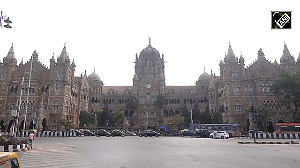The textiles ministry will seek the continuation of excise exemption for the cotton sector and the rationalisation of duties on man-made fibres in the Budget.
Textile Minister Shankarsinh Vaghela on Wednesday said the measures would make the country more competitive compared with China.
"The textile sector has recovered from recession and is now at the take-off stage. We want a tariff structure on fibres that is on a par with competing countries like China," Vaghela told Business Standard.
While the government had scrapped excise on cotton, man-made fibre and yarn still attract a mandatory excise duty of 16 per cent and 24 per cent.
In addition to sops for the man-made sector, the ministry will also seek duty reduction on imports of second-hand machinery for the sector.
"There are certain machinery that are not made locally. Since these machines have a long usage period, we want to liberalise the import of such machinery to allow local units to upgrade their technology," he said.
The ministry is also considering a proposal to include the man-made segment under the textile upgradation fund scheme. The government has already enhanced the benefits to the powerloom sector under the scheme.
"I have also convened a meeting with bank chiefs of the western region in Ahmedabad later this month to review the progress of the scheme," he said.
Vaghela said the ministry was also reworking the textile infrastructure development scheme and the apparel park scheme by merging the two. The minister said he had also written to Finance Minister P Chidambaram to restore the old duty drawback rates.
The finance ministry had last month notified the new drawback rates on the basis of weights against the earlier system of using standard input-output norms.
"Under the new system, jute and silk get the same value. The downward revision of drawback rates is affecting export firms, which have taken orders factoring in the earlier rates," he added.







 © 2025
© 2025